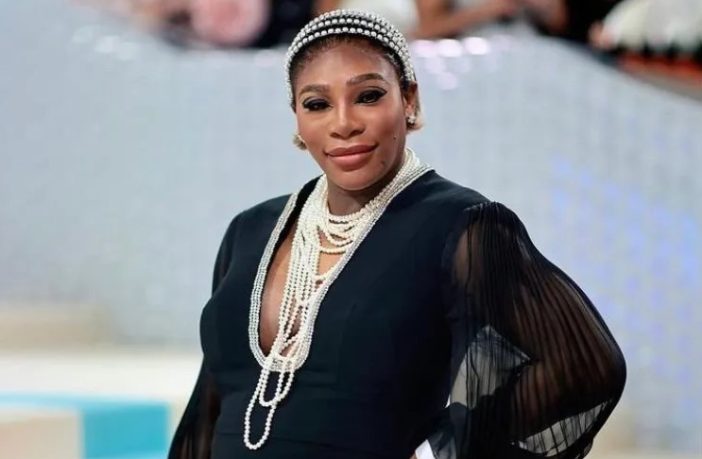By Liz Courquet-Lesaulnier,
and Alexa Spencer,
Word in Black
Glowing in custom Gucci, tennis icon Serena Williams revealed her second pregnancy at the Met Gala in New York City on May 1, sparking well-wishes and congratulations from her fellow celebs and fans worldwide.
Yet, behind the joyous news, there’s also worry.
Williams’ last journey to motherhood was a stark reminder of the crisis affecting Black women in America: the fight for maternal health equity.
In September 2017, Williams gave birth to her first child, Alexis Olympia Ohanian Jr. And although the birth was a moment of joy for Williams and her husband, Reddit co-founder Alexis Ohanian, it was also marked by life-threatening complications.
In 2018, Williams detailed for CNN how she suffered from a pulmonary embolism and a near-fatal hematoma, conditions that required multiple surgeries and a six-day hospital stay.
“I am so grateful I had access to such an incredible medical team of doctors and nurses at a hospital with state-of-the-art equipment. They knew exactly how to handle this complicated turn of events. If it weren’t for their professional care, I wouldn’t be here today,” she wrote.
But Williams’ ordeal is, unfortunately, not an isolated incident, and not all Black women are so lucky.
Across the United States, according to the Centers for Disease Control and Prevention, Black women are three to four times more likely to die from pregnancy-related complications than White women. This alarming disparity cannot be explained by income, education or access to health care alone. Instead, it is deeply rooted in systemic racism and the accumulated effects of chronic stress on the bodies of Black women.
Tennis star Serena Williams revealed a new baby bump on the Met Gala’s red carpet this year. Like too many Black mothers, she experienced complications with her first baby. (Photo credit: @gucci/Instgram)
Serena Williams’ fame and fortune did not shield her from the dangers that disproportionately affect Black mothers. Even with access to the best medical care, Willams’ faced the same risks as other Black women.
Research tells us that babies born to the richest Black mothers are still more likely to die than those born to the poorest White moms. And those wealthy Black moms are twice as likely to die from childbirth complications than wealthy White mothers.
A study published in November by the National Bureau of Economic Research discovered this telling disparity after examining income tax and death records in California, where Williams was raised.
The crisis of Black maternal health is not just a result of individual acts of discrimination but is also perpetuated by policies and practices that disadvantage Black women. Racial disparities in healthcare, lack of access to comprehensive reproductive health services, and the scarcity of Black healthcare providers all contribute to the worsening situation.
Last June, the Biden-Harris administration released a “Blueprint for Addressing the Maternal Health Crisis.” The plan includes expanding Medicaid coverage for mothers from two months to one year postpartum, investing in rural maternal care, and launching a 24/7, toll-free maternal mental health hotline.
The White House also plans to diversify the maternal care workforce and increase access to doulas and midwives, whose support is linked to lower rates of c-sections and premature births.
For Black Maternal Health Week, vice president Kamala Harris sat down with Chanel Porchia, founder of Ancient Song Doula Services, to chat about how doulas “add to the life experience.”
“As a general matter, in the healthcare system, and especially when you are talking about gender and race, and racial bias in the system, helping people to understand that they have a right to ask questions and they have a right to have those questions answered,” Harris said.
Porchia has been supporting Black moms and birthing people for over a decade. She and other doulas around the nation don’t plan on stopping anytime soon.
“I really wanted to create a space where people felt like ‘I am seen,’ ‘I am heard,’ and ‘I feel like someone genuinely cares about me,” she told Harris.
Serena Williams’ second pregnancy offers a chance to shine a light on the urgent need to improve Black maternal health outcomes in America. As we celebrate this new chapter in her life, let us also work together to ensure that all Black mothers can experience the joys of motherhood without fearing for their lives or their babies’ lives.
This article was originally published by Word in Black.



